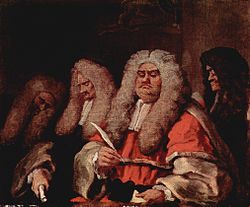
A magistrate is a public official who exercises judicial power, with origins in the Latin term magistratus meaning "chief" or "overseer". Historically rooted in the Roman Empire[1]The magistrates held various political and administrative positions, deriving authority from the imperium. Different types of magistrates existed, including ordinary and extraordinary officials, with varying levels of power and responsibility. In modern legal systems, judicial magistrates are members of the judiciary who administer the justice[4]They have constitutional guarantees of permanence and independence. Whilst traditionally associated with judicial functions, some countries of civil law[3] include public prosecutors in the judiciary. These professionals represent public interests in criminal cases, working alongside judicial magistrates. The role and scope of magistrates vary between legal systems, reflecting diverse approaches to governance and administration[2] of justice.
Magistrate usually refers to the exercise of judiciary.

In Brazil, the magistrates are only the judgesIn spite of the fact that both categories (magistrates and members of the judiciary) are not members of the judiciary, they are not members of the judiciary. Public Prosecutor's Office) enjoy the constitutional guarantees of life tenure, irremovability and irreducibility of salaries (allowances).
In turn, some countries whose legal structure is based on the Roman Law (countries like Italy, France, Germany, Spain, Portugal) have judges and magistrates in their ranks. prosecutors (or public prosecutors).
The notion of judiciaryin some countries includes judges and prosecutors, is unknown in countries that adopt the common law (such as the United Kingdom, the United States or Canada), which extend constitutional guarantees only to their judges, in strict sense.